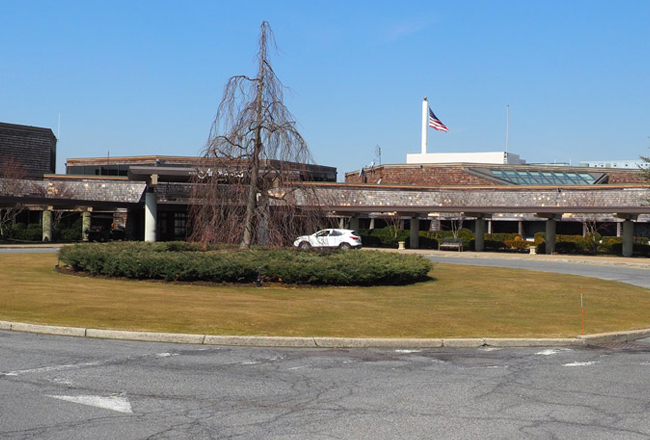Doral Arrowwood foreclosure deal stalled in legal dispute
Anderson Hill Road Capital, the company that holds the mortgage on the dilapidated Doral Arrowwood Hotel and Conference Center in Rye Brook, claims that the owners of the resort have reneged on a deal to transfer the property.
Anderson Hill, controlled by Manhattan real estate investor Charles S. Cohen, petitioned Westchester Supreme Court on July 19 to enforce an unsigned agreement with DCCA, the owner, to settle several lawsuits and transfer the property.

By June 7, after five months of negotiations, the terms of the settlement had been “drawn, approved and completed” according to the petition, but members of the Kaskel and Schragis families who control DCCA have yet to sign the papers.
“We expect this case to be dismissed,” DCCA’s attorney, Alfred E. Donnellan, stated in an email. He said the petition failed to disclose that no one was bound by draft agreements “unless signed by an authorized representative of the clients.”
Doral Arrowwood opened in 1983 as a conference center for Citibank. In 1986, the Kaskel, Blum and Schragis families bought the property and developed it into a premier resort, with 373 hotel rooms, 70,000-square-foot conference center, restaurants, 9-hole golf course, swimming pools and other amenities on a 114-acre property spanning Westchester and Fairfield counties.
DCCA ”“ descendants of Alfred and Doris Kaskel ”“ owns the property. In 2019, U.S. Bank, the trustee for a $75 million loan, filed a foreclosure action against the resort.
Anderson Hill, Cohen’s company, acquired the mortgage.
Westchester Supreme Court Justice Gretchen Walsh appointed a receiver to run the resort. In January 2020, Doral Arrowwood closed.
The demise of Doral Arrowwood spawned several lawsuits, including an action by New York Attorney General Letitia James on behalf of employees who lost their jobs.
Last year, Walsh ordered Anderson Capital to pay $2.7 million to the employees who lost their jobs. She ordered DCCA to pay nearly $254,000 to the receiver for debts that were incurred before the receiver was appointed.
This past February, Anderson Hill, DCCA and KSB Arrowwood Realty Corp. crafted a letter of intent for a settlement.
For five months they negotiated the details, according to Anderson Hill’s petition, and came up with a 17-page agreement by June 7.
Five pending lawsuits would be discontinued, for instance. Anderson Hill would buy the golf course and golf range from KSB for $8 million. A “soft landing for favorable tax treatment” for the sellers would be included.
But DCCA had not paid the $254,000 judgment ordered by the judge. Donnellan, DCCA’s attorney, allegedly told Anderson Hill’s attorney that DCCA had no money for the judgment, and that was a “deal breaker.”
Anderson Hill agreed to pay the judgment.
The deal’s closing day became a sticking point. The settlement called for a closing 45 days after the agreement was signed. DCCA wanted to close immediately after the signing.
Anderson Hill feared that DCCA could breach the agreement, according to the petition, and leave the company “exposed to significant damage and thwart its plans for the property.”
DCCA feared that Anderson Hill needed time to secure financing for the deal.
“Given the history,” DCCA attorney Pete Cane said in a July 7 letter to Walsh, “my clients do not want to hand over their signatures and then wait to get paid by Mr. Cohen.”
Cane said DCCA had proposed waiting 45 days to close the deal if Cohen made a 10% deposit to ensure performance. But Cohen allegedly rejected the offer.
Cane asked Walsh to persuade Cohen “that this reasonable compromise will end this dispute once and for all.”
Anderson Hill’s attorney, Thomas Decea, wants Walsh to direct the members of DCCA to execute the settlement agreement as is.
She has scheduled an Aug. 11 hearing to consider their arguments.